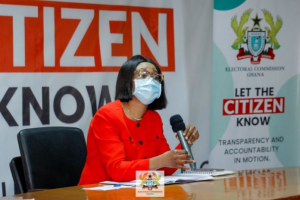The COVID-19 global pandemic has affected both the local and international market of the Textile and Apparel industry in Ghana, president of the Association of Ghanaian apparel manufacturers.
Mr Gregory Kankoh who was speaking on behalf of the Textile and Apparel industry, said that the government’s restrictions which prevented people from sewing for occasional events was a colossal loss to the industry.
He added that the industry has lost about 80% of its market because most of the companies and institutions they produce for are no longer in active service due to government’s restrictions.
In an interview, Mr Kankoh appreciated government’s efforts in providing stimulus package to support industries that have been affected by COVID-19.
Touching on how the industry is working to boost local production and how to reduce the high import, he said the industry is putting everything in place but it will need mass production to help reduce the cost on locally manufactured clothing.
Meanwhile, the National Executive Member of the Association of Ghana Industries and Chief Executive Officer for Sleek Garments Export Limited, Mrs. Nora Bannerman-Abbott congratulated the Ghana Apparel and Textiles industry for producing about three million quality PPEs within a month during this pandemic era.
According to her, COVID-19 is enough testimony that the clothing and the textiles industry has the capacity to produce and create more jobs to help reduce the importation of second hand clothing.
Touting the achievements of the industry during the COVID 19, Mrs Bannerman-Abbott said the Garments and Textiles industry played a key role in keeping all front workers safe and the entire nation.
To help reduce the high level of imported garments, used clothing and used mattresses into the country, Mrs Bannerman-Abbott noted that the industry will need partnership with government to rid the market of these cloths.
By:Mabel Faith Tannor







